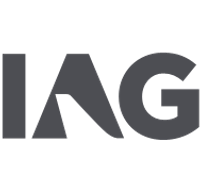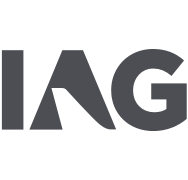

International Consolidated Airlines Group SA
LSE:IAG

International Consolidated Airlines Group SA
International Consolidated Airlines Group SA, commonly referred to as IAG, stands as a powerhouse in the global aviation industry. Born from the merger of British Airways and Iberia in 2011, the company has expanded its operations to include multiple carriers such as Aer Lingus, Vueling, and LEVEL. Each airline under IAG's expansive umbrella retains its distinct brand identity, allowing the conglomerate to cater to a diverse customer base across various segments. Operating in Europe, North America, and beyond, IAG leverages the strengths of its constituent airlines to optimize routes, reduce costs, and maximize its market influence. This strategic model enables it to navigate the volatile winds of the aviation sector with agility, from luxury long-haul flights to budget-friendly short skips.
IAG's revenue engine is fueled primarily by its passenger services, with a significant portion also deriving from cargo operations. This dual revenue stream helps cushion the company against potential variances in travel demand, especially during unpredictable economic climates. Additionally, ancillary services such as inflight retail, loyalty programs, and partnerships with hotels and car rental firms fortify its financial backbone. The synergy between its airlines fosters operational efficiencies, whether through shared aircraft, joint procurement agreements, or harmonized IT platforms. This intricate web of operations not only helps in achieving economies of scale but also reinforces IAG’s resilience amidst industry challenges, such as fluctuating fuel costs and stringent environmental regulations.

International Consolidated Airlines Group SA, commonly referred to as IAG, stands as a powerhouse in the global aviation industry. Born from the merger of British Airways and Iberia in 2011, the company has expanded its operations to include multiple carriers such as Aer Lingus, Vueling, and LEVEL. Each airline under IAG's expansive umbrella retains its distinct brand identity, allowing the conglomerate to cater to a diverse customer base across various segments. Operating in Europe, North America, and beyond, IAG leverages the strengths of its constituent airlines to optimize routes, reduce costs, and maximize its market influence. This strategic model enables it to navigate the volatile winds of the aviation sector with agility, from luxury long-haul flights to budget-friendly short skips.
IAG's revenue engine is fueled primarily by its passenger services, with a significant portion also deriving from cargo operations. This dual revenue stream helps cushion the company against potential variances in travel demand, especially during unpredictable economic climates. Additionally, ancillary services such as inflight retail, loyalty programs, and partnerships with hotels and car rental firms fortify its financial backbone. The synergy between its airlines fosters operational efficiencies, whether through shared aircraft, joint procurement agreements, or harmonized IT platforms. This intricate web of operations not only helps in achieving economies of scale but also reinforces IAG’s resilience amidst industry challenges, such as fluctuating fuel costs and stringent environmental regulations.
Strong Margins: IAG delivered market-leading operating margins of 22% in Q3, with all airlines posting over 20% margins; 15.2% margin achieved over the last 12 months.
Revenue Growth: Passenger revenue increased by EUR 177 million (up 2%) year-on-year, despite some currency headwinds and flat PRASK at constant currency versus a record quarter last year.
Cost Discipline: Nonfuel unit cost increases moderated to flat in Q3, after a 4.6% rise in Q2, benefiting from transformation initiatives and procurement savings.
Positive Outlook: Bookings for Q4 and early 2026 are tracking positively across most regions, with strong demand, especially on long-haul routes.
Shareholder Returns: Interim dividend of EUR 220 million announced; share buyback program of GBP 1 billion nearly complete, with further returns planned at full-year results.
Loyalty Program Growth: IAG Loyalty grew operating profit by GBP 16 million year-on-year, with a multi-year American Express partnership extension signed.
Full-Year Guidance: 2025 outlook is unchanged; management expressed confidence in meeting consensus profit expectations (just under EUR 5 billion).


